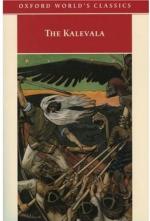|
This section contains 1,473 words (approx. 4 pages at 400 words per page) |

|
In the following excerpt, Rexroth examines reasons that the Kalevala has endured as a work of literature that still has meaning for modern readers.
Philosophical critics in the nineteenth century decided that a culture is most solidly based on a great epic which incorporates all the prime factors in the national or folk consciousness—or "unconscious." There is a whole nest of very disputable assumptions hidden here. First, that Greek culture was solidly based. It was not. Its glory was in its dynamic equilibrium—which was short-lived. National consciousness does not come from the Nibelungenlied or The Iliad. It is an intellectual notion, born with the nation-state, which came to fruition with the State as an Armed People in the French Revolutionary Wars and degenerated into the idea of the "folk unconscious" in the long drawn-out struggle of the Germans for a national identity.
All...
|
This section contains 1,473 words (approx. 4 pages at 400 words per page) |

|




